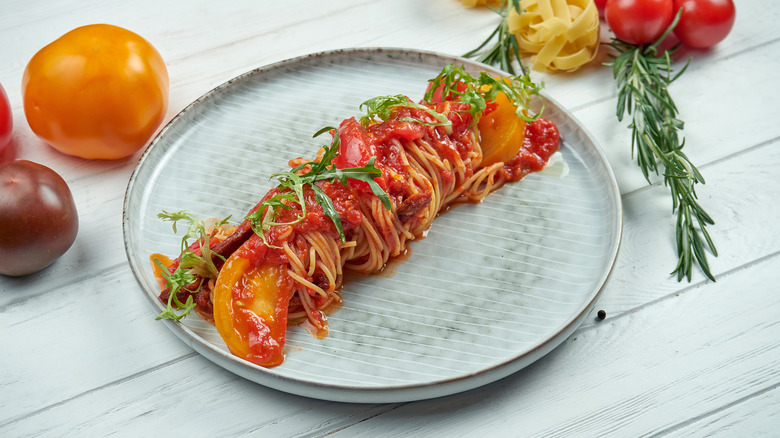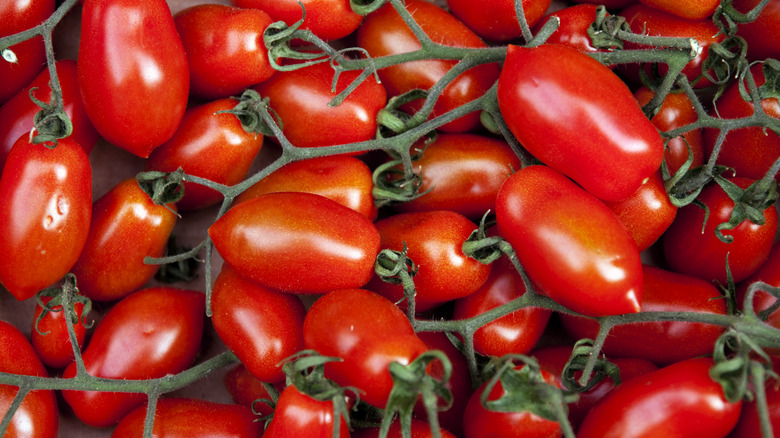Use Tomatoes With Low Water Content When Making No-Cook Sauce
No-cook tomato sauces are the perfect way to highlight the taste of fresh tomatoes. They're quick, simple, and perfect for occasions when you don't want to fire up the stove. In the summer, they're the perfect way to use up an overabundance of garden tomatoes; in the winter, they're a fresh, welcome break from stews and root vegetables. However, no-cook tomato sauces do have downsides. They're often thin and runny. They refuse to adhere to your pasta. They leave an offputting puddle in the bottom of your bowl when you're done.
Normally, you'd fix a runny sauce by simmering it until it starts to cook down, but that would defeat the entire point of a no-cook sauce. It's almost enough to make you give up on uncooked sauces entirely — or even turn to the pantry for a store-bought jar. Luckily, there's an easy fix: It's all in the tomatoes. Some types of tomatoes are more watery than others, so pick ones that have less water strategically for a thicker sauce. That holds true for any tomato sauce, but since fresh, no-cook sauces are particularly prone to runniness, it's particularly important. For the best results, opt for dense, flavorful, plum tomatoes. They're also known as "paste tomatoes" since — you guessed it — they're the classic choice for making tomato paste.
Which types of tomatoes are best for no-cook sauces?
Fleshy and flavorful, plum tomatoes tend to have an oblong shape and come in a wide variety of sizes. Aside from their lower water content and dense flesh, they're easy to peel and tend to have few seeds, making them perfect for sauces of all kinds. Plum tomatoes are widely available, so you shouldn't have trouble finding them in the grocery store.
If you can't find anything specifically labeled "plum tomatoes," look for "Roma tomatoes," "Big Mamas," or "San Marzano tomatoes," all varieties of the classic plum tomato. These varieties all have their own distinct characteristics but should work well for sauces. However, some varieties of plum tomatoes, especially diminutive grape tomatoes, are small enough that they'd be a pain to prep. Larger tomatoes will cut down on prep time, so opt for heftier varieties like Big Mamas or Amish Paste tomatoes. Kumato Tomatoes are another option with a low water content. Steer away from beefsteak tomatoes, especially out of season. This variety is particularly watery.

